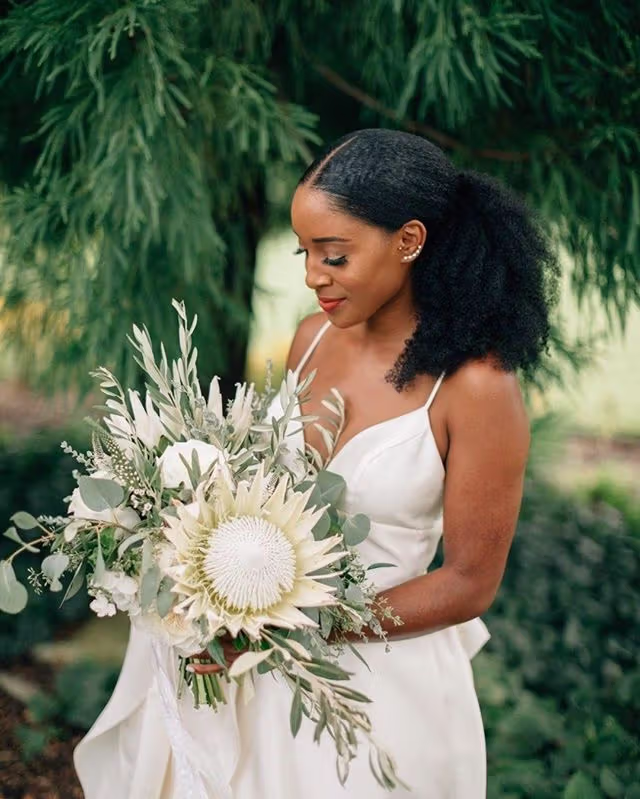2 mn read
The tradition of carrying a wedding bouquet has a fascinating history and has evolved significantly over time. Here’s a glimpse into how this beautiful custom developed:
ANCIENT ORIGINS
- EARLY PRACTICES: In ancient Greece, Rome, and Egypt, brides did not carry the floral bouquets we recognize today. Instead, they held bundles of herbs and spices such as garlic, dill, and rosemary. These were believed to offer protection against evil spirits and bad luck, ensuring a prosperous start to their married life.
MIDDLE AGES
- HERBAL SYMBOLISM: During the Middle Ages, the use of herbs continued, with each herb symbolizing various virtues like fertility and purity. For example, dill was thought to enhance sexual desire, and garlic was used to ward off negative energies.
VICTORIAN INFLUENCE
- INTRODUCTION OF FLOWERS: The transition from herbs to flowers began in the 19th century, largely due to Queen Victoria of England. When she married Prince Albert in 1840, she carried a bouquet of fresh flowers, setting a new trend for brides throughout Europe.
- FLORIOGRAPHY: During this era, flowers took on specific meanings—a practice known as “floriography.” Different flowers conveyed particular messages:
- ROSES symbolized love and passion.
- LILIES represented purity.
- MYRTLE was associated with fertility and eternal love.
MODERN BOUQUET TRENDS
- PERSONAL PREFERENCES: As wedding traditions evolved, bouquets became more personalized. Modern brides select flowers based on aesthetic preferences, color schemes, or personal significance. The tradition of throwing the bouquet also became popular, with the belief that the woman who catches it will be the next to marry.
- SYMBOLISM TODAY: Despite the focus on personal choices, many brides still consider the symbolic meanings of flowers. For example:
- PEONIES are chosen for their association with happiness and prosperity.
- LAVENDER signifies calmness and devotion.
CONTEMPORARY TOUCHES
- MODERN VARIATIONS: Today, wedding bouquets are not only decorative but also a statement of personal style. Some brides opt for grand, lush arrangements, while others prefer minimalist designs. Additionally, eco-conscious brides may choose dried flowers or sustainable plant-based bouquets.
- CULTURAL SIGNIFICANCE: In various cultures, bouquets may include flowers passed down through generations or those worn in the hair, adding a personal and cultural touch to the wedding celebration.
The wedding bouquet has indeed evolved from its ancient origins, reflecting both personal tastes and the changing nature of wedding traditions.

